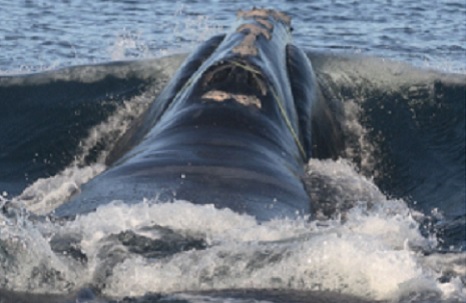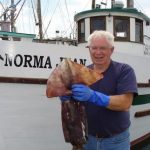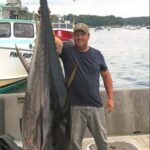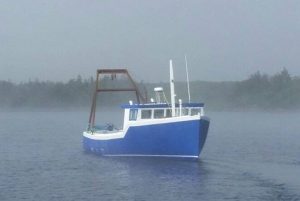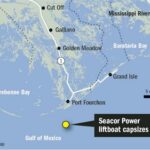Tag Archives: National Marine Fisheries Service
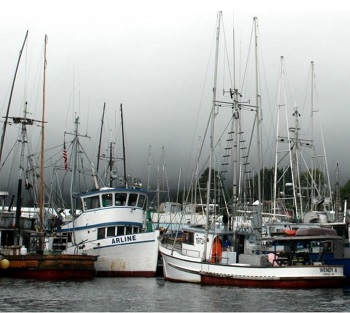
Southeast Alaska communities set to join opposition to lawsuit that threatens king salmon fishery
Ketchikan, Wrangell and Petersburg are set to join a growing chorus of Alaska voices highlighting the impact the suit could have on the region’s fishing fleet. The lawsuit from the Washington state-based Wild Fish Conservancy centers on an endangered Puget Sound population of orcas known as Southern Resident killer whales. Killer whales eat salmon, especially big, meaty king salmon, and the conservation group argues federal officials haven’t properly accounted for the impact the Southeast king salmon fishery has on the Puget Sound orcas. Late last year, a federal judge issued a report that threatens to close the Southeast king salmon fishery until the National Marine Fisheries Service comes up with a fix. >click to read< 11:50
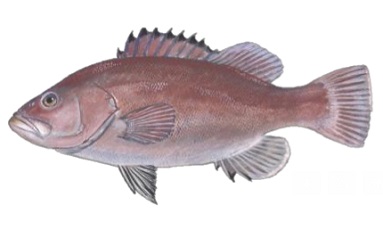
Proposed Snowy Grouper Management Measures Will Harm the Stock and Commercial Fishermen — Help Us Fight
Last fall the [SAFMC] South Atlantic Fishery Management Council approved Amendment 51 to the South Atlantic Snapper/Grouper FMP. Now the National Marine Fisheries Service (NMFS) is considering whether or not to sign it into law. Amendment 51 would modify snowy grouper management measures for the worse. It will continue to allow recreational sector over-harvesting, increase recreational dead discards, harm the stock, and deal another devastating blow to commercial fishermen in the South Atlantic. Our commercial fisheries are under attack with a 43% reduction of ACL and Amendment 51 is just the latest salvo with more to come. Now is our chance to stand up for conservation and commercial fishermen. >click to read< 10:45
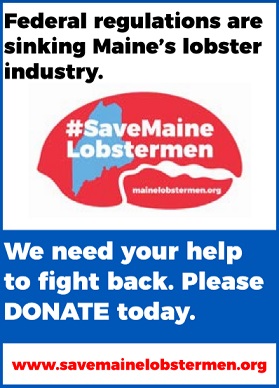
MLA back in court this month over federal lobstering rules
The Maine Lobstermen’s Association continues its court fight against the National Marine Fisheries Service, challenging its biological opinion for the endangered right whale, released in May 2021, and the science used to inform it. The MLA lost its original lawsuit in Sept. 2022 but was granted the right to appeal. Oral arguments are scheduled for Feb. 24 in the U.S. Court of Appeals in the District of Columbia. The Maine Department of Marine Resources and the Maine Lobstering Union Lodge 207, the Massachusetts Lobstermen’s Association, are intervenors in the case. “[The six-year delay] just really amplifies the concerns that the MLA has had,” MLA executive director Patrice McCarron said. “It highlights and exemplifies the importance of the work we’ve done and the importance of letting the lawsuit run its course.” >click to read< 09:23
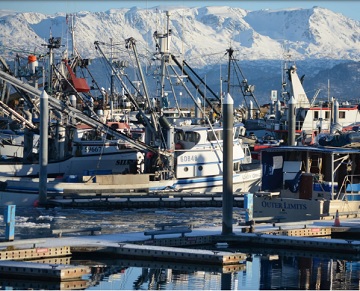
Lawsuit threatens to shut down Southeast salmon troll fishery
An ongoing lawsuit by a Washington State environmental group is threatening to shut down the Southeast Alaska salmon troll fishery in the summer and winter to help endangered Puget Sound orca whales, and has prompted the trollers to ask the City of Sitka to help pony up for legal bills. The Seattle-based group Wild Fish Conservancy filed suit last year and a federal court ruled last August that the National Marine Fisheries Service had violated the Endangered Species Act and the National Environmental Policy Act in approving salmon harvests in the Southeast troll fishery, which catches chinook salmon, a key food source for the Puget Sound orcas. In the meantime, lawsuits and rulings are continuing. >click to read< 08:36
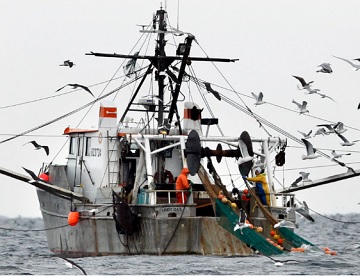
New monitoring rules for Northeast fishermen
Changes to U.S. rules about the monitoring of Northeast commercial fishing activities are going into effect this month with a goal of providing more accurate information about some of the nation’s oldest fisheries. The U.S. mandates observers to work onboard fishing boats to collect data and make sure fishermen adhere to rules and quotas. The National Marine Fisheries Service has adopted new monitoring rules for Northeast fishermen of groundfish, like haddock and flounder, to try to improve the accuracy of the data. >click to read< 11:57
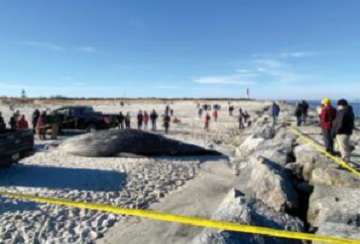
Advocacy Groups Demand Transparent Investigation into Deaths of Six Endangered Whales
Calling the deaths of six endangered whales that have washed up in 33 days on the beaches of New Jersey and New York “alarming and environmentally harmful,” local, state and regional ocean advocacy groups are calling for President Joe Biden to immediately address the unprecedented trend. “The noise from the offshore wind vessel is a potential cause of the recent whale stranding and increased near-shore sightings,” said Bob Stern, president of Save LBI, a nonprofit, non-partisan coalition opposed to the placement of offshore wind farms off Long Beach Island. “The beached whales bear no sign of vessel strike or fishing gear entanglement, leaving natural causes or noise as the potential causes and raising the likelihood that our concerns were well-founded.” >click to read< 16:03
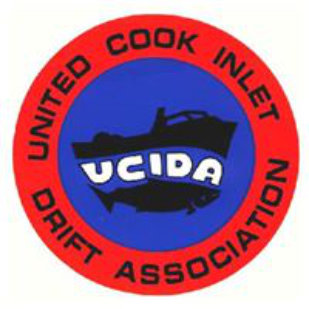
Council has 4 months to fix Cook Inlet salmon fishery management plan
The future of the Cook Inlet salmon fishery is again in the air as the North Pacific Fishery Management Council debates how to manage it after a federal court ruled that it has to write a new plan. It’s been six years since a federal court ruled that the council’s decision to remove Cook Inlet from a federal management plan and defer entirely to the state was illegal. The council initially decided to remove Cook Inlet in 2012, a decision that the United Cook Inlet Drift Association challenged in court. In 2016, the court agreed with the association, ordering the council to create a new federal management plan that includes the federal waters of Cook Inlet. >click to read< 09:47

With bill’s passage, lobster industry welcomes 6-year break from new regulations
Hours before a stopgap spending measure was set to expire, Congress voted to pass the $1.7 trillion omnibus package to fund the government through September 2023. The package passed in the Senate Thursday afternoon with a large bipartisan majority, 68-29. Maine’s delegation was able to include a rider in the package that protects lobstermen for six years from rules that the industry says would decimate the state’s iconic fishery and coastal economy. The provision essentially reverses a federal court decision this summer on new lobstering regulations by preventing them from taking effect until Dec. 31, 2028. >click to read< 09:14
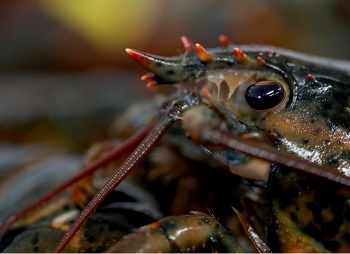
Lobster more than a Maine event
The headline said that Whole Foods would no longer be selling Maine lobster in its stores. My first reaction was to wonder what the lowly, although expensive crustacean had done to warrant such action from Whole Foods usually described as an upscale grocery chain that is owned by Amazon and as such is a part of the Jeff Bezos’ empire. To add insult to injury the California based Monterey Bay Aquarium through its environment focused seafood watch went and “red listed” Maine lobsters. I guess that means shipments of Maine lobsters will be stopped at the California border. I wonder if that includes the border with Mexico where just about anything gets through? Obviously, the Maine lobstering industry is up in arms over all this. >click to read< By Thomas Kirkpatrick Sr 12:56

Walton: Maine lobsters — a coast to coast dispute
Some years back I wrote about my distaste for seafood. If it swims in our oceans or lakes, I don’t eat it. To my surprise, many readers acknowledged they feel the same. So perhaps they are as shocked as I am that I rise to the defense of the Maine lobster industry, which finds itself on a prominent and respected environmental “watch” list, threatening thousands of jobs up and down the Maine coast. Why should a guy who prefers a good burger care? >click to read< 08:19
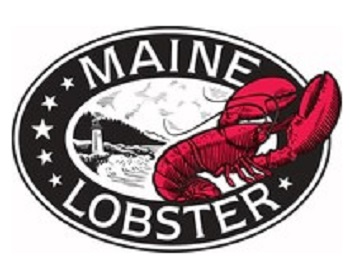
Ongoing Legal Battles Put Maine Lobster Fishery in Crosshairs, Results in Suspension of Marine Stewardship Council Certification
An ongoing legal dispute between environmental activists and the federal government has led Maine Lobster’s Marine Stewardship Council (MSC) fishing certification to be suspended. An independent auditor conducted a comprehensive evaluation of the fishery earlier this year and determined that Maine Lobster is a well-managed and sustainable fishery according to MSC fisheries standards. Shortly after this assessment, a court ruled that regulations issued by the National Marine Fisheries Service to govern the management of North American right whales (NARW) do not meet the requirements of federal laws to protect endangered species. As a result of this court ruling, while the industry has complied with all regulations in good faith, the independent auditor suspended the MSC certificate of the fishery. >click to read< 18:02

Draft North Atlantic Right Whale and Offshore Wind Strategy Announced
As the Bureau of Ocean Energy Management (BOEM) has ramped up offshore wind development to meet the Biden-Harris administration’s goal of generating 30 gigawatts of offshore wind by 2030, the question of how the expansion of offshore wind energy could affect the critically endangered North Atlantic right whale (NARW) has come under close review. To help address this question and support the recovery of endangered NARW and the responsible development of offshore wind energy, BOEM and the National Oceanic and Atmospheric Administration’s National Marine Fisheries Service (NOAA Fisheries) developed a joint Draft North Atlantic Right Whale and Offshore Wind Strategy (the Draft Strategy). >click to read< 11:29

Federal officials issued ‘economically debilitating’ rules on the Maine lobster industry, court filing says
The Maine Lobstermen’s Association on Thursday filed its opening brief with the U.S. Court of Appeals as the industry works to beat back regulations that it says will crush Maine’s signature fishery. Federal officials have proposed gear modifications to reduce the incidence of entanglement for endangered right whales, which number about 340. Other regulations would close certain areas to lobster fishing while the whales are migrating. The lobstermen’s association argues that the National Marine Fisheries Service must prove Congress gave it authority to issue stringent rules. >click to read< 07:17
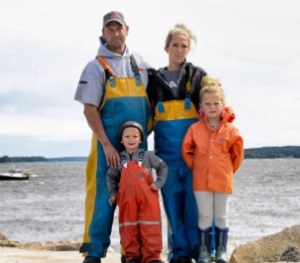
Maine Lobstermen’s Association Files Opening Brief in Appeal of Burdensome Federal Regulations
The fight to save Maine’s iconic lobster industry has reached the U.S. Court of Appeals for the D.C. Circuit, as the Maine Lobstermen’s Association (MLA) filed its opening brief in a challenge to the federal regulations poised to crush workaday fishermen. The National Marine Fisheries Service (NMFS) is implementing a rule that requires fishermen to reduce the risk of right whale entanglement with lobster gear by 98 percent. The overwhelming majority of Maine lobstermen are unable to afford compliance with the draconian risk reduction plan, that according to the NMFS, will not even recover the whale population. The plan will likely result in a corporate takeover of the remnants of Maine’s fishery, destroying the culture, charm, and most importantly, the families and communities who have responsibly fished Maine lobsters for generations. >click to read the press release< 11:38

First National Bank supports Maine’s lobster industry with $300K donation
First National Bank announced Monday a $300,000 commitment to the Maine Lobstermen’s Association. The donated funds will take the form of a $150,000 direct donation to the MLA’s Save Maine Lobstermen campaign. The MLA is currently appealing a court decision in its lawsuit against the National Marine Fisheries Service which, if enacted, would decimate Maine’s lobster industry and negatively affect not only the economy of Maine’s coastal communities, but also the economy of the entire state. Additionally, the Bank will provide longer term support in the amount $150,000 to assist the industry in any way the Association sees fit. >click to read< 11:21

Maine lobster group backs new speed limit on ships to protect whales
A proposal to expand speed limits along the East Coast might have little impact on vessels off Maine and is not directly linked to two lawsuits over pending federal regulations for the state’s lobster fishery. Still, the groups involved in that litigation recently weighed in on the speeding proposal, which is part of broader efforts to save right whales from extinction. The Maine Lobstermen’s Association and four conservation groups supported the stricter limits but took issue with other aspects of the rules and reiterated the priorities that have driven their court battles. >click to read< 09:31

Whale injuries from drift gillnets off California spark lawsuit against U.S.
Environmentalists on Thursday sued the agency overseeing U.S. fisheries, claiming it had failed to protect endangered humpback whales from entanglement in drift gillnets used in commercial fishing off California. The lawsuit accuses the National Marine Fisheries Service of violating the Endangered Species Act by allowing drift gillnets without safeguards and failing to take into account the harm posed to whales already at risk of extinction. >click to read<, – The Center for Biological Diversity sued NOAA Fisheries today to force it to protect endangered Pacific humpback whales from entanglements in California drift gillnets. In the past two fishing seasons an estimated 12 Pacific humpbacks were caught in the California drift gillnet fishery, according to federal reports. >click to read< 10:35
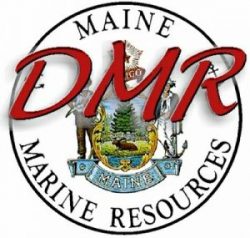
Commissioner’s Update – Good News? Cautiously Optimistic
The Center for Biological Diversity, in their case against the National Marine Fisheries Service, has done an about face. In their first filing, they had asked Judge Boasberg to implement new rules to achieve the required risk reduction within 6 months, but their filing last Friday asked the Judge to implement a two-year process to develop and implement those rules. They also asked the Judge to vacate the current Biological Opinion so that it can be rewritten while the new rules are being developed. Why they changed their position is not known, but DMR, NMFS, MLA, MLU and Mass Lobstermen all asked for a similar process that was two years or longer. In any event, this development is good news, but the Judge must agree before this is final. I am cautiously optimistic that he will agree that time is needed, given the complexity and difficulty of what we are facing. We expect a decision on this case in November. >click to read the rest< 14:01

Lobstermen may get temporary delay on new right whale restrictions
The lobster industry, National Oceanic and Atmospheric Administration, and the Center for Biological Diversity are involved in federal court negotiations over imposing new and tougher restrictions on fishing. The CBD brought a suit against the federal agency, arguing the rules imposed earlier this year don’t do enough to protect the endangered whales, as required by federal law. The National Marine Fisheries Service, which is part of NOAA, said it needed two years, while the CBD suggested just six months,,, >click to read< 08:57

BREAKING NEWS: Maine Lobstermen’s Association Motion to Expedite Appeal Granted
(October 19, 2022)— On October 18, a federal appeals court sided with the Maine Lobstermen’s Association (MLA) in granting the MLA’s request to expedite consideration of its appeal of the decision in Maine Lobstermen’s Association v. National Marine Fisheries Service. The Court rarely grants motions to expedite. On October 11, the MLA announced that it has retained former U.S. Solicitor General Paul Clement and had filed for expedited consideration of MLA’s appeal to the United States Court of Appeals for the District of Columbia in its lawsuit to reverse a scientifically flawed federal whale plan that will cripple Maine’s lobster industry. >click to read the full press release< 14:06
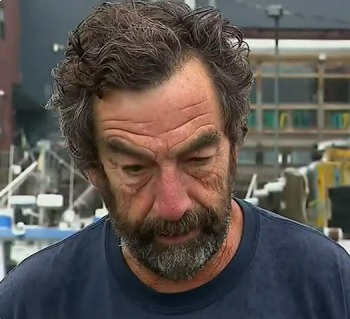
Group that claims catching lobsters is harmful to whales draws sharp rebuke in Gloucester
Nothing says “Massachusetts, or really “New England”, like a lobster. But our iconic crustacean just got a failing grade from an environmental group. The Seafood Watch Project, which operates out of the Monterey Bay Aquarium, put lobster on their red list. This is devastating news at Cape Ann Lobstermen, a Gloucester facility that processes up to 40,000 pounds of locally caught lobster a day. “The lobster industry is probably the biggest fishing industry left in this area,” said company president Tessa Browne. “There’s probably 150+ boats in this harbor that come and go on a daily basis who have 1-2 crewmen who support their families.” “We’re being unfairly targeted when the main culprit is ship strikes,” said lobsterman Richard Black. Video, >click to read< 14:00

Maine lobstermen appeal federal judge rejection of lawsuit
The Maine Lobstermen’s Association is appealing a federal judge’s ruling that rejected a lawsuit aimed at blocking new regulations designed to protect the endangered North Atlantic Right Whale. The appeal goes to the United States Court of Appeals for the District of Columbia Circuit. In announcing their appeal Monday morning, the MLA said the regulations would “cripple” Maine’s lobster industry, calling the regulations “draconian and fundamentally flawed.” >click to read< 09:42
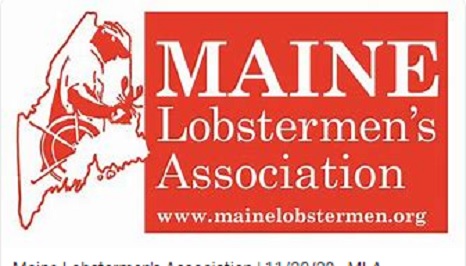
Statement from the Maine Lobstermen’s Association
The Maine Lobstermen’s Association has issued the following statement following the U.S. District Court for the District of Columbia’s decision in Maine Lobstermen’s Association v National Marine Fisheries Service. “The federal district court and the National Marine Fisheries Service (NMFS) have failed Maine’s lobster industry. It has become crystal clear that neither grasp the devastating impacts their decisions will have on the Maine lobster industry, our coastal communities, and the State of Maine. The court’s decision provides a blank check for NMFS to continue to use admitted “worst case scenarios” and disregard actual data in its regulation of a fishery that has zero documented right whale entanglements over the last 18 years. This disappointing decision puts the future of Maine’s lobstering heritage at great risk, and along with it, the livelihoods of thousands of hard-working men and women. But this is not the end. We won’t go down without a fight.” 08:48

U.S. District Court Judge James E. Boasberg rejects bid to block to new lobstering rules
A federal judge on Thursday shot down a challenge by lobstering groups to federal rules intended to protect endangered North Atlantic right whales. U.S. District Court Judge James E. Boasberg rejected a bid by the Maine Lobstermen’s Association, the Massachusetts Lobstermen’s Association and the state of Maine to block federal regulators from imposing new limits on where and how lobstermen can fish in federal waters. The court, which had previously ruled that new federal regulations didn’t go far enough in protecting right whales, said Thursday that the state and lobstering groups couldn’t delay or derail the regulations. Boasberg rejected the lobstering groups’ contention that the National Marine Fisheries Service’s regulations overstated the risk that lobstering posed to the whales and overregulated the industry. >click to read< 20:04
Governor Mills Blasts Federal Court Decision in Lawsuit Challenging Federal Regulations Hurting Maine’s Vital Lobster Industry >click to read<

ENGO recommends against consuming lobster over danger to whales
Seafood Watch, a program out of the Monterey Bay Aquarium, says entanglement in fishing gear is the leading cause of death of the critically endangered North Atlantic right whale population, and US and Canadian lobster fisheries aren’t doing enough to prevent it. Jennifer Dianto Kemmerly is vice president of global ocean conservation at the Aquarium. “We really want consumers and businesses to be aware of how dire the situation is,” Kemmerly said. Meanwhile, the international conservation group Oceana blamed the National Marine Fisheries Service for failing to update safeguards that would protect both right whales and lobster fisheries. To remove the red listing, it recommends using ropeless gear, expanding seasonal closures where whales are present, and improving transparency and monitoring of fishing vessels. >click to read< 18:11
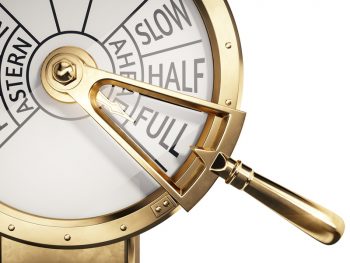
Some ship operators push back at rules requiring slowdown for whales
Federal regulators who want to enforce new vessel speed rules to help protect rare whales can expect some pushback from ship operators. The National Oceanic and Atmospheric Administration announced the new proposed rules, which are designed to protect the last remaining North Atlantic right whales, last month. The rules would expand seasonal slow zones off the East Coast and require more vessels to comply with the rules. The American Pilots’ Association is concerned the new rules would make operations more hazardous for pilot boats, said Clayton Diamond, executive director of the group. >click to read< 13:41

Fishery interests urge judge to rule in lobster lawsuit
Parties in a lobster industry lawsuit filed against federal regulators are urging a judge to make a decision in the case because its outcome affects a parallel case that the parties have to act on. The federal judge considering this decision was the same who ruled last month that new regulations to protect endangered right whales do not go far enough and violate both the Endangered Species Act and Marine Mammal Protection Act. In that case, U.S. District Judge James Boasberg asked the parties to propose remedies. The lobster association’s case takes aim at newly enacted and proposed federal regulations to protect the whales, which the association says are invalid because they are based on flawed assumptions and calculations. The parties need to know the court’s opinion so they can develop proposed remedies that Boasberg ordered in the parallel lawsuit brought by conservation groups. >click to read< 17:01
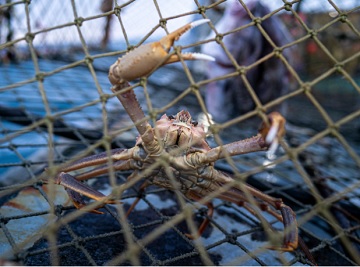
Scientists point to climate as likely cause for snow crab decline
Even as scientists are still trying to figure out why the Bering Sea snow crab stock crashed in 2021, federal managers are working on a plan to help rebuild it. Data from last year’s survey at this point seems to confirm that there was a massive decline in the number of young snow crab in the Eastern Bering Sea—something like 99% fewer female snow crab showed up in the survey from 2021. Jaime Goen, Alaska Bering Sea Crabbers, told the council that the crab industry is reeling from the revenue loss both in the snow crab fishery and the complete closure of the Bristol Bay red king crab fishery this year. What hurt was the suddenness — a few years ago, the crab stocks were looking hopeful and like a good investment, and many businesspeople and crew members bought in with the hopes those investments would pay off, she said. “Now those same people are facing bankruptcy,” >click to read< 22:00






